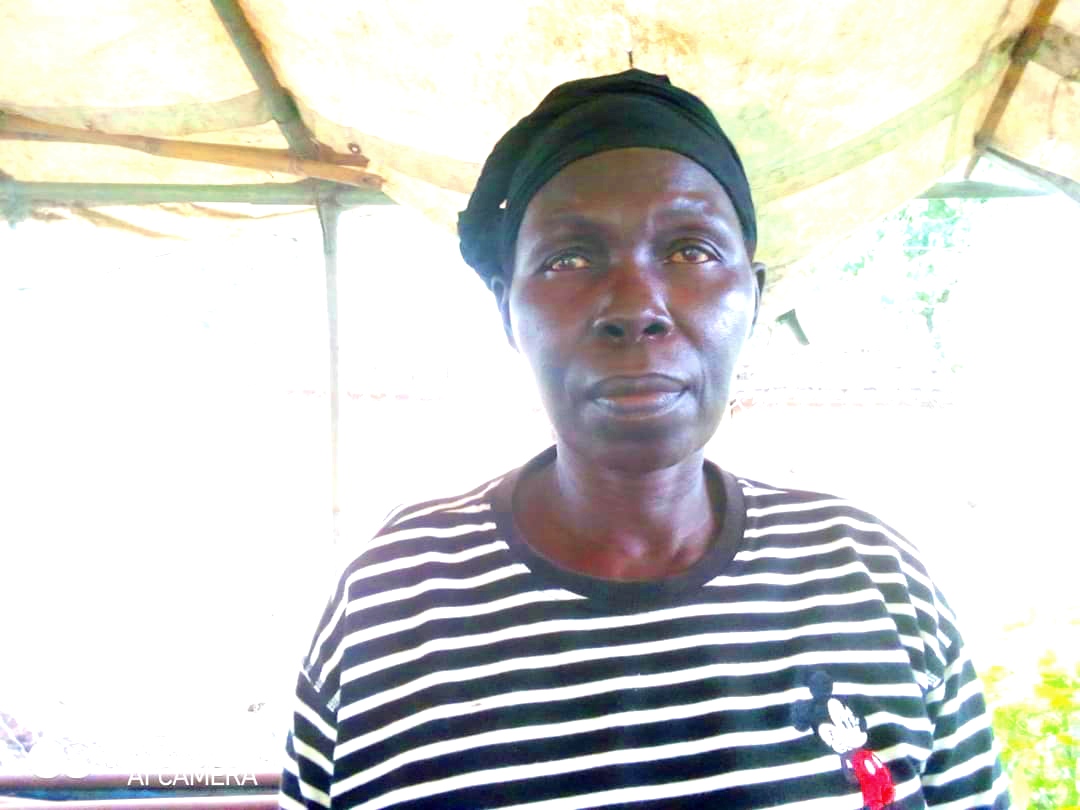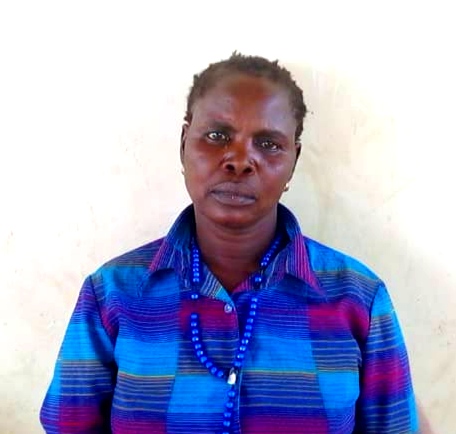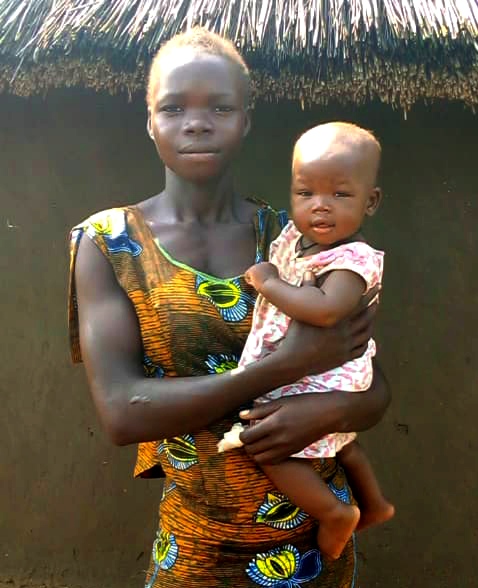Attention
STANDING WITH REFUGEE WOMEN IN ADJUMANI TO BREAK BARRIERS ON MENTAL HEALTH.

By Bazio Doreen.
82% of refugee households in Adjumani face mental health issues commonly referred to as ‘riak-nhom’ (disturbed mind) in Diinka (The most prominent South Sudan Language) according to findings in a 2021 Mental Health and Psychosocial Support Baseline Assessment report done by Alliance Forum for Development (AFOD). A 2021 World Bank study also stated that refugees in Uganda are ten times more prone to experience depression symptoms with incidences much higher among females. As some of the victims share their experiences, it is now evident that the United Nations High Commission for Refugees (UNHCR), and other partners in Adjumani have created hope away from home for refugee women facing mental health issues especially due to limited access to basic needs.
Beneficiaries’ testimonies.
One such beneficiary is Christine Kiliha who used to be among the 14% of refugees in Adjumani who abuse drugs. Kiliha, 36, a South Sudanese refugee living in Pagirinya, married, mother of 8, reveals that she started abusing drugs after failing to cope with the challenges that come with having a husband who is less supportive amidst the ever-dwindling food ration and limited access to other basic needs. Unfortunately, Kiliha, only received help from Lutheran World Federation (LWF) after she had miscarried and was in dire need of psychosocial support. All this was happening amid memories of how she almost lost her life when she first got pregnant at 13.
“I got pregnant at the age of 13 but out of fear to disclose, I continued to do manual labor until my father discovered my secret. My father threatened to kill me and I had to stay away from home for two months. I started marriage on a bad note and am now worried that my daughter is already facing the same at 11,” Kiliha narrates.
For Dudu Betty, 47, a widow, South Sudanese living in the Borooli settlement, and mother of 4, it was tough to cope with the sudden loss of her husband to a fatal accident. This she recalls made her have a miscarriage because she couldn’t take the thought of having to suddenly fend for her 4 children and the other 3 that her husband had brought into the home when they got married. This burden was however lessened when she attended group sessions organized by LWF with other widows.
“I was stressed and confused because I had just lost a stepson who was s supporting me and my husband fend for the family,” Dudu recalls.
Nabwire Martha, a clinical Psychologist with LWF, observes that they try to minimize relapses of beneficiaries into depression disorders by giving out financial grants to some of them. She also observes that this has enabled the women to become more productive because the project also empowers them to identify sources of income/livelihood. Those who were previously stigmatized are also supported to gain back their self-esteem in the community. In 2023 alone, LWF reached out to 2,902 women with funding from UNHCR and 553 women with support from other partners. LWF works in all the 19 refugee settlements in the district. However, as NGOs empower women, this comes with negative effects too. There is a risk of Gender-Based Violence, as many men feel that they are ignored or left out. The stronger and braver women leave their husbands to fend alone for the family.
Mary Candia, 44, a South Sudanese refugee from Kajokeji, widow, and mother of 7, left her husband who she reveals wasn’t supporting her to meet the family’s basic needs. She has since decided to resort to farming and doing casual work as a source of income. She also adds that the charcoal business had progressed but old age has now caught up with her and she can’t do much.
“After I lost my husband, I decided to get another man but I was forced to also abandon him because he wasn’t supportive. He couldn’t even fend for the 2 children that I had for him. When you don’t have money, it is easy to think about suicide. But that has since changed after receiving counseling. I use the little money I get for basic needs because I can’t afford school fees,” Candia says.
Sr Alice Bunia, the officer-in-charge of Mental Health at Adjumani General Hospital, states that the district records at least 2,000 cases of mental health disorders and about 10 cases of suicide each year.
For Drania Unichi, from Nimule – South Sudan living in Maaji settlement, and married with two children, the case is quite different. She was abandoned by her husband when she was just 6 months pregnant. This was after they fought because he wasn’t supportive even while he is a farmer. She now does casual work and hairdressing to support the young family.
According to Alice Azunyo, a Child Protection Assistant - World Vision, under a 3-year (2022 – 2025) project funded by the Finland Ministry of Foreign Affairs, they have reached out to 492 refugee women in Mungula and Maaji refugee settlements. Under the Problem Management Plus (PMP) Program, beneficiaries from Child Protection and VSLA engagements are identified to benefit from mental health sessions where they share their problems and possible solutions for advice and scrutiny. Alice also observes that due to the PMP program, there has been a decrease in cases of Gender Based Violence because women learn techniques to calm down emotions not only their emotions but those of their intimate partners. There has also been a decrease in child neglect and child abuse due to improved livelihoods, and reduced alcoholism. Women usually mistreat their children because they fear to attack their husbands/men.
This is very likely for women like Anzoa Gift who get married when they are helpless or vulnerable. Anzoa, 21, a South Sudanese living in Pagirinya, married with one child, was chased away from home after it was discovered that she was being courted by a boy. Unfortunately, she ended up with a man who wasn’t worth the effort. Her husband was shortly arrested for defilement. At the time, she was pregnant and had to start selling snacks to be able to start paying up the loan of her husband while he served his sentence and negotiated with the family of her co-wife. Abortion thus became an option but she was counseled out of it under a project by Tutapona, a mental health-focused NGO working in Adjumani.
“After my husband was arrested for defilement, I was so depressed because I felt so alone. I felt abortion was an option because I had entered marriage unwillingly,” Anzoa explains.
According to Asienzo Agnes, a Mental Health Field Facilitator, since 2014, Tutapona has run 3 projects in Nyumanzi, Borooli, Ayilo, Olua, Pagirinya, and Agojo settlements through a gradual process of psychosocial support and awareness, mentorship, referrals, exhibitions, and counseling that is needs-based. In 2023, they reached out to 191 women out of 340 beneficiaries.
Other interventions.
Indeed young people like Anzoa need innovative ways of helping them break barriers on mental health issues. Right to Play (RTP), an NGO working in Pagirinya settlement, Adjumani was creative enough to improve the skills and capacities of refugee and host community youth to support their psychosocial well-being and mental health through enriched access to safe sport. With funding from the Olympic Refugee Foundation, between August 2020 and July 2023, RTP in a consortium of 4 other partners has reached out to 11, 668 vulnerable youth between 15 – 24 years, in 4 refugee hosting districts through soccer, and netball. In Adjumani, RTP has enrolled 168 females, created 7 youth spaces, and 12 groups, done 12 home visits, and established 18 sports clubs.
In other similar projects, the Transcultural Psychosocial Organization (TPO) and UN Women, between 2016 and 2020 implemented the Cognitive Behavioral Therapy project with about 28,225 women and girls’ beneficiaries receiving counseling, training on positive coping mechanisms and life skills after screening. Jesuit Refugee Services, another NGO, in 2023 also supported 1,387 women out of 1,744 beneficiaries to improve resilience, psychosocial well-being, and positive coping mechanisms to come to terms with past traumatic experiences and future shocks through training, sensitization and emergency support in thematic areas of child protection and Sexual Gender Based Violence. In a project that started running from December 2023 and ends in August 2025, Emesco Development Foundation has also so far treated 299 women out of 528 beneficiaries during the 36 out of 80 outreaches so far conducted in Agojo, Alere, Oliji, and Elema settlements.
Adjumani hosts about 244,374 refugees in 19 settlements. 85% (182,977) of the population are women and children. 55% of the 1,500,000 refugees living in Uganda are from South Sudan. The Refugee Response Plan (RRP) 2019-2020 emphasizes the reinforcement of MHPSS services and infrastructure as a key priority. However, according to UNHCR, as of October 2019, the RRP was funded at only 39%. Earlier this year, partners started joint efforts in Maaji and Ayilo settlements in Adjumani to be able to meet an increasing demand for mental health services. AFOD, an NGO that has been working in Adjumani since 2016 has also received funding under which they acquired 10 acres of land in Rende Village, Adropi Sub County, to construct a Mental Health Rehabilitation Centre.
Government effort.
In April 2022, the Ministry Of Health (MOH), Uganda drafted and validated the first national mental health strategic plan (2022 -2026) which seeks to among other functions strengthen mental health response and provide comprehensive, integrated, and responsive mental health care. The subject of mental health has gained increased attention in recent years, with most initiatives focused on attempts to decentralize and integrate mental health into primary health care. Unfortunately, there are only 53 psychiatrists in Uganda and most are located in urban areas. The Mental Health Psychosocial Support (MHPSS) working group in Kampala has been operational and meeting monthly since May 2019, with similar groups established at the settlement level. However, despite some positive reforms in Uganda's mental health landscape, according to MOH the prevalence of mental health problems remained as high as 30% as of November 2023.
END.



